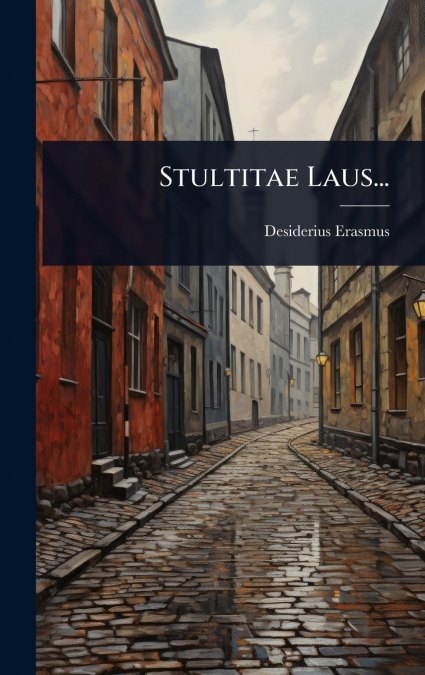
Desiderius Erasmus
Stultitiae Laus, or 'The Praise of Folly', is Desiderius Erasmus’s most famous work, a satirical essay written in Latin in 1509. A masterful display of wit and erudition, it is narrated by the personification of Folly (Stultitia), who praises herself in a style that is both humorous and thought-provoking. Erasmus critiques various aspects of Renaissance society, including the Church, scholars, and the follies of humankind. A cornerstone of Renaissance literature, 'The Praise of Folly' remains a relevant and insightful commentary on human nature and societal absurdities. Its enduring appeal lies in its sharp wit, insightful observations, and timeless themes, making it a must-read for anyone interested in Renaissance thought, satire, and the power of folly.This work has been selected by scholars as being culturally important, and is part of the knowledge base of civilization as we know it. This work was reproduced from the original artifact, and remains as true to the original work as possible. Therefore, you will see the original copyright references, library stamps (as most of these works have been housed in our most important libraries around the world), and other notations in the work.This work is in the public domain in the United States of America, and possibly other nations. Within the United States, you may freely copy and distribute this work, as no entity (individual or corporate) has a copyright on the body of the work.As a reproduction of a historical artifact, this work may contain missing or blurred pages, poor pictures, errant marks, etc. Scholars believe, and we concur, that this work is important enough to be preserved, reproduced, and made generally available to the public. We appreciate your support of the preservation process, and thank you for being an important part of keeping this knowledge alive and relevant.